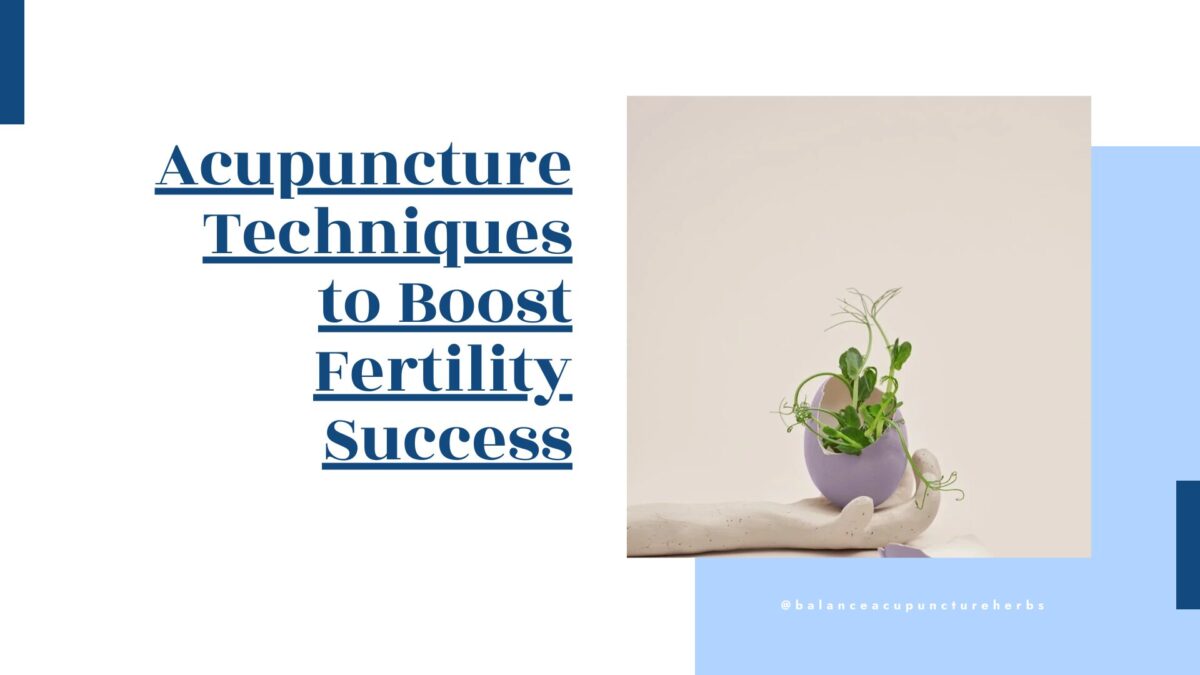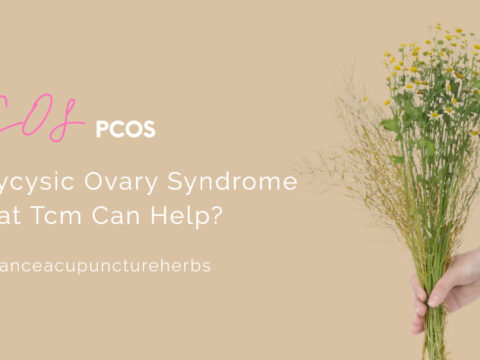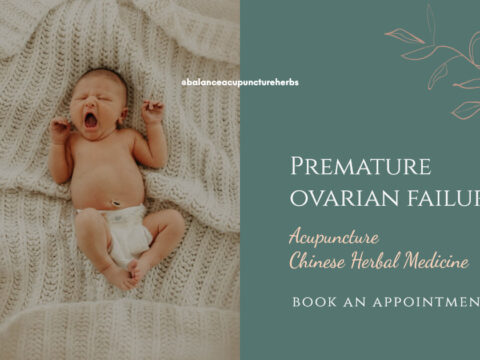
Dry Needling vs Acupuncture: Key Differences Explained
October 19, 2024
How Often Should You Have Acupuncture
October 27, 2024|
Getting your Trinity Audio player ready...
|
Acupuncture Techniques to Boost Fertility Success
Navigating the path to parenthood can sometimes be challenging. For those facing fertility issues, acupuncture may offer a complementary approach.
Acupuncture, an ancient Chinese practice, has been used for centuries to enhance health and well-being. It involves inserting thin needles into specific points on the body to balance the body’s energy flow, known as Qi.
In recent years, acupuncture has gained attention for its potential to boost fertility. By targeting specific points linked to reproductive health, acupuncture may help improve fertility outcomes.
This article aims to shed light on the role of acupuncture in fertility enhancement. We’ll delve into the specific techniques used, and answer common questions such as “where do needles go for fertility acupuncture?”
Whether you’re considering acupuncture as part of your fertility journey, or simply curious about the process, this guide will provide comprehensive insights. Let’s explore how acupuncture techniques can potentially boost fertility success.
Understanding Acupuncture and Fertility
Acupuncture is rooted in the principles of Traditional Chinese Medicine (TCM). It’s believed to balance the body’s energy flow, or Qi, promoting overall health.
When it comes to fertility, acupuncture can be tailored to address specific issues. By targeting points linked to reproductive health, it may enhance fertility. This is achieved through increasing blood flow to reproductive organs, balancing hormones, and reducing stress.
Common acupuncture points for fertility include the spleen, liver, and kidney meridians. These points are often targeted to improve conditions that can affect fertility, such as hormonal imbalances or irregular menstrual cycles.
Acupuncture is often used alongside other fertility treatments. For instance, it can be combined with In Vitro Fertilization (IVF) to potentially increase success rates.
The Role of Qi in Reproductive Health
In TCM, Qi is the vital energy that flows through the body. It’s believed to be essential for health and well-being.
When Qi is balanced, it can contribute to improved reproductive health. This is because a balanced Qi is thought to enhance the body’s natural fertility.
Acupuncture aims to balance Qi by stimulating specific points on the body. This can potentially improve fertility by promoting a healthier energy flow within the reproductive system.
Scientific Evidence Supporting Acupuncture for Fertility
Research into acupuncture and fertility has yielded promising results. Studies suggest that acupuncture may improve fertility by increasing blood flow to reproductive organs and balancing hormones.
Some studies have shown that acupuncture can improve the thickness of the endometrial lining. This is crucial for successful implantation during conception.
Moreover, acupuncture is considered a safe treatment with minimal side effects when performed by a licensed practitioner. However, it’s important to consult with a healthcare provider before starting acupuncture treatments for fertility.
Lastly, acupuncture can be beneficial for both men and women’s fertility. It can address issues like sperm quality and ovulation, further supporting its role in fertility enhancement.
Key Acupuncture Points for Fertility
Acupuncture for fertility typically focuses on points along the meridians that correspond to the reproductive system. These points are believed to influence fertility by regulating the body’s energy flow.
Common acupuncture points for fertility include the spleen, liver, and kidney meridians. These points are often targeted to improve conditions that can affect fertility, such as hormonal imbalances or irregular menstrual cycles.

The placement of needles during fertility acupuncture can vary. However, it often includes points on the lower abdomen, legs, and back. These areas are believed to be connected to the reproductive organs through the body’s energy pathways.
Where Do Needles Go for Fertility Acupuncture?
“Acupuncture for fertility where do needles go?” is a common question. The answer is that the placement of needles can vary based on the individual’s needs and the acupuncturist’s approach.
Typically, needles are inserted at points along the meridians that correspond to the reproductive system. These can include areas on the lower abdomen, legs, and back.

The goal is to stimulate these points to balance the body’s energy flow. This is believed to enhance fertility by promoting a healthier energy flow within the reproductive system.
It’s important to note that while certain points are commonly used for fertility acupuncture, the treatment plan is often customized to the individual’s needs and health conditions.
Acupuncture in Conjunction with Other Fertility Treatments
Acupuncture is often used in conjunction with other fertility treatments. This is because it is believed to enhance the effectiveness of these treatments by improving overall reproductive health.
For example, acupuncture is often used alongside in vitro fertilization (IVF). The goal is to increase the success rates of these treatments by promoting a healthier energy flow within the reproductive system.
It’s important to note that acupuncture is often recommended as a complementary therapy, not a standalone treatment, for fertility issues. This means it is used to support, not replace, other fertility treatments.
Acupuncture and IVF Success Rates
Some studies have shown that acupuncture can improve the success rates of IVF. This is believed to be due to the way acupuncture can improve the thickness of the endometrial lining, which is crucial for successful implantation.
Acupuncture treatments are typically timed to coincide with certain phases of the IVF process. For example, treatments may be more frequent during the stimulation phase and immediately before and after embryo transfer.
However, it’s important to remember that while some studies suggest a positive correlation, results can vary. As with all fertility treatments, success rates can depend on a variety of factors, including age, overall health, and the cause of infertility.
Safety and What to Expect During Treatment
Acupuncture is generally considered a safe treatment when performed by a licensed practitioner. It has minimal side effects, and many patients describe the experience as relaxing.
During a session, thin needles are inserted into specific points on the body. The placement of these needles can vary depending on the individual’s needs and health conditions.
It’s important to communicate openly with your acupuncturist about your fertility goals. This will help them tailor the treatment to your specific needs and ensure the best possible outcome.
Preparing for Your First Acupuncture Session
Before your first acupuncture session, it’s a good idea to have a light meal. This will help prevent any feelings of lightheadedness during the treatment.
During the session, you’ll be asked to lie down on a comfortable treatment table. The acupuncturist will then insert the needles into the appropriate points on your body. The needles are typically left in place for about 20 to 30 minutes.
Choosing the Right Practitioner
Choosing a qualified and experienced acupuncturist is crucial for fertility treatments. It’s best to select a practitioner who specializes in fertility and has a good understanding of reproductive health.
Remember to check their credentials and ask about their experience with fertility acupuncture. This will ensure you receive the best possible care.
Conclusion: Embracing a Holistic Approach to Fertility
Acupuncture is a valuable part of a holistic approach to fertility. It can complement other treatments and promote overall reproductive health.
However, remember that every individual is unique. What works for one may not work for another. Always consult with a healthcare provider before starting any new treatment.
Read More:
[IVF or IUI] Acupuncture Improves Success Rate of Fertility Treatment
Chinese Herbal Medicine and Acupuncture For Infertility
Premature Ovarian Failure in TCM
PCOS Alternative Treatment-TCM
Dry Needling vs Acupuncture: Key Differences Explained
How Can Basal Body Temperature (BBT) Help You Understand Your Fertility?
[wpseo_address show_state=”1″ show_country=”1″ show_phone=”1″ show_phone_2=”0″ show_fax=”0″ show_email=”0″ show_logo=”0″]
[wpseo_map max_number=”undefined” width=”400″ height=”300″ zoom=”-1″ map_style=”roadmap” scrollable=”1″ draggable=”1″ show_route=”0″ show_state=”0″ show_phone=”1″ show_phone_2=”0″ show_fax=”0″]




